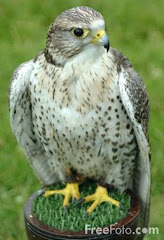Venue: Balkh University/Faculty of Agriculture
May 24-25
Following SEA conservation education programs in northern Afghanistan and the continual phases of public awareness and conservation and cranes education program, we organized two days seminar for Balkh university students and professors on 24-25 May 2008 with around 150 participants from different departments of Balkh governmental authorities, PRT, university including faculty of Agriculture. The main objective of the seminar was to increase the student’s and university staffs awareness and to attract their views on the cranes and other wildlife conservation. Most of the topics were integrated issues of modern, traditional and religious conservation aspects with the opinion that birds and wildlife is God creatures and any adverse effects them are prohibited.

The seminar consisted of two stages; 1) to present an overview of general aspects of Afghanistan's ecological areas, migratory birds, cranes and existed wildlife and; 2) interaction session with the participant’s views on the conservation of cranes and other wildlife in the area. The interaction session highlighted many important issues including their interest in conservation and dissemination of information among the local communities. Main topics of the seminar consisted the followings:
- Introduction of world and Afghanistan cranes.
- Introduction of cranes habitat and migration corridors in Afghanistan.
- Comparing the status of cranes conservation in other countries and the strategy of birds’ protection in Afghanistan and the mandate of those organizations that dedicated to birds and cranes conservation.
- A presentation public awareness program that has been conducted in Afghanistan especially in the corridor of migratory species.
- Why conserve wildlife?
- How can conserve the wildlife in the country?
- How can stop hunting?
- Where to stop treats to wildlife?
- When it should happen?
- How can implement our objective in the areas?
- How can go a head with the future programs?
- Who can be volunteer to join the efforts?


Feedback of the participants:
· Wildlife is part of nature and we should not damage the nature because it’s the food chain and we live in it.
· God created the wildlife and ordered us to use and protect and this is our responsibility to conserve God creatures.
· Disappearing of wildlife in nature means end of our life and we all live in nature and benefit of the food chain.
· Lack of public awareness is the main threat and we must increase public awareness.
· The continuation of Education programs through different channels including visual Medias, informative and education materials to those has access to it.
· Organize conservation seminars for government authorities.
· Develop and finalize hunting laws
· Alternative programs that can support communities and reduce the pressure
· Work with local people to prevent hunting and we must bring different examples from other countries where is not hunting and the values of wildlife in those countries.
Commitment of participant in return
All participants committed to transfer the messages to the areas where they live and to work on the issues that they interacted during the two days seminar. Most of the participants showed their interest to join us and help us when we conduct the survey and conservation education programs in their villages.
Education materials
Various informative materials that have been developed by SEA, ICF and WCS were distributed to the participants and other local people in the area. At the meantime, we would like to extend our thanks to WCS and Kara Steven for her efforts in providing posters and wildlife broachers for the seminar. We are committed to continue the efforts and conserve the area for a safe migration.
Qais Agah
Environmental education technical advisor
Wildlife conservationist


















No comments:
Post a Comment
Please add your comment in the base of posted subject.
Note: Only a member of this blog may post a comment.